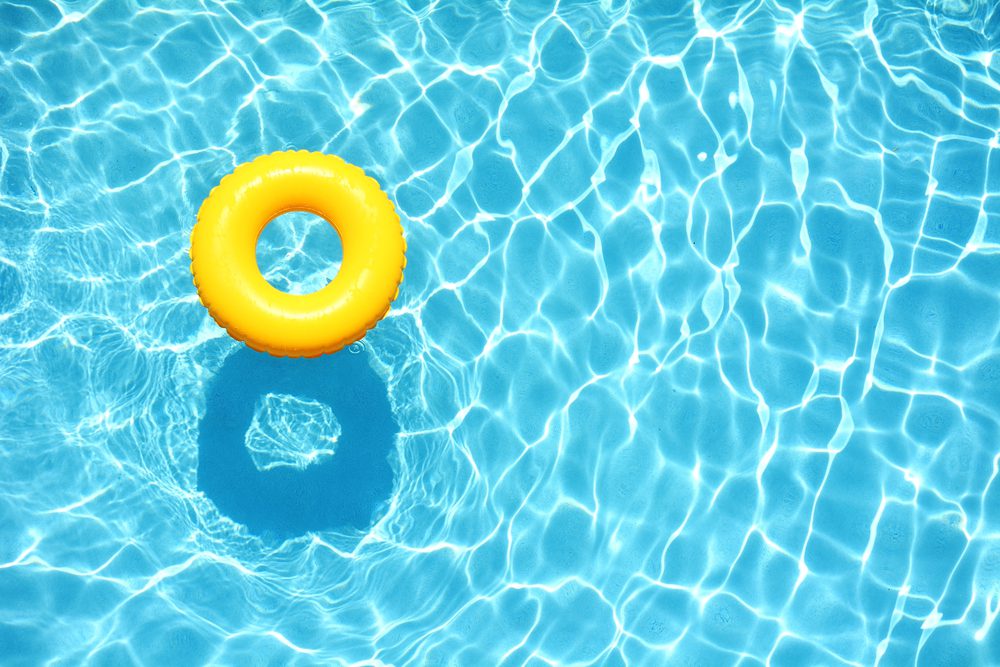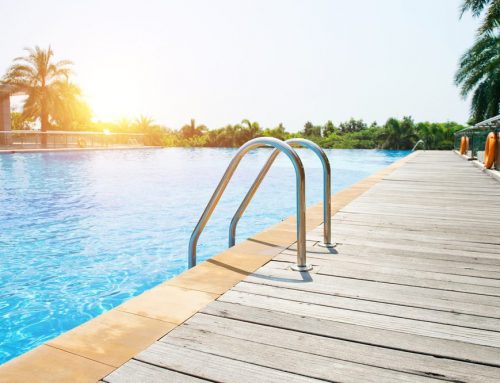Deciding to install a pool was easy. Now you need to figure out what type of pool is right for you and your family. This article will help you decide between an above ground and in ground pool by exploring both options… Let’s dive in!
EVERYTHING TO KNOW ABOUT ABOVE GROUND POOLS
It makes me happy to see how above ground pools have evolved over the last several years. Better, stronger materials are used and there are more sizes to choose from. Contractors have also proven how beautiful and functional surrounding deck options are. They help to turn your pool and yard into a wonderful spot to hangout.
Above ground pools are known for being budget friendly. It’s a smaller investment to start, with reduced ongoing maintenance (both costs and labour).
A major drawback is that an above ground pool will not add any value to your home. They may last for years, decades even, still, an above ground pool is usually seen as a temporary structure. Some families don’t like how shallow an aboveground pool is, since they don’t come with a deep end, they’re not safe for diving. Other families however, prefer an above ground pool for this, it makes them feel safer.
ALL ABOUT INGROUND POOLS
Here in Trenton, we’re lucky to have a climate that allows us to enjoy our pools, usually from the end of May to September, sometimes even October (if we’re lucky). That means installing an inground pool could potentially add value to your home. Since they’re a water feature, inground pools also enhance the landscape. They look great from the patio or inside the house.
Any pool is great for entertaining, but the patio built around an inground pool creates a special space for guests to gather. There’s quite the variety of shapes and sizes for inground pools; a nice opportunity for you to personalize the pool, and increase its functionality. If you know, for example, that you’ll be swimming a lot of laps, a rectangular pool, opposed to a kidney or oval shape might be best.
Inground pools are usually more expensive than an above ground. The initial investment required when installing a permanent pool is steeper and the ongoing maintenance costs are usually higher too. Inground pools tend to be much bigger than above ground pools. A larger pool means more water to fill it up every spring, and refill from evaporation. More chemicals are needed to keep it clean and healthy just as more electricity is needed to heat it. An inground pool will also take much longer to install. Opening and closing the pool each year can be a little timelier as well.
ON-GROUND POOLS, A GOOD COMPROMISE?
After comparing above ground to inground pools, and weighing the pros and cons, you may still be undecided. That’s ok, because a newer concept, on-ground pools, are proving to be a good compromise.
With an on-ground pool, part of the structure is installed in the ground, with the rest above the ground. This creates a lot of opportunity to really customize your pool, while reaping the benefits of both worlds.
An on-ground pool is more costly than an above ground pool, but a much smaller investment than inground. It’s faster to install than inground pools, but still offers the freedom to choose any size or shape. You can also choose to have a deep end for diving, or keep it shallow.
On-ground pools are also a great choice for backyards with hills, uneven ground or any other challenging situations that would make an above or inground pool impossible. An additional bonus, on-ground pools are usually easier to meet city pool height requirements.
If you’re still not sure which option is right for your home, swing by our store and showroom on Dufferin. We love talking pools, and helping customers create their dream backyards.


